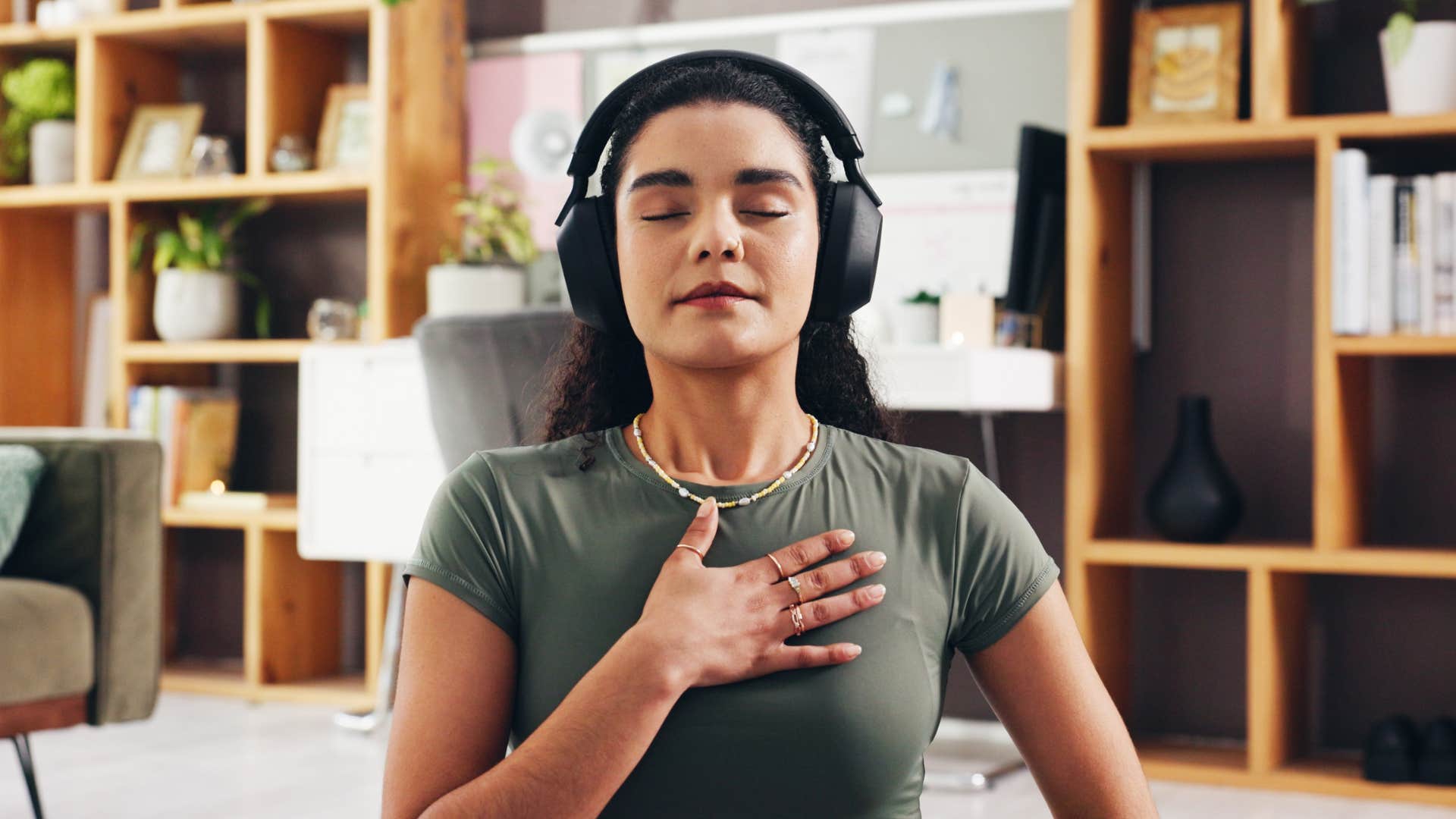When Your Heart Starts Racing From Anxiety, These 6 Habits Can Help You Regain Control
Your heart's racing, your chest is tight — here's what to do when anxiety hits fast.
 Nathan Dumlao | Unsplash
Nathan Dumlao | Unsplash When your heart suddenly starts racing from anxiety, it can feel like your body has turned against you. Your chest tightens, your hands shake, your breath shortens — and in seconds, you're convinced something is seriously wrong. Panic attacks can make even the calmest person feel out of control, especially when you don't know what's happening or how to make it stop. Before you can calm yourself, it helps to understand what's actually going on inside your body and what those symptoms mean.
A racing heart from anxiety is your body's fight-or-flight system doing its job — it's trying to protect you, not harm you. Once you understand that, you can learn how to calm it down. Whether your panic feels like a wave of dread or a full-blown attack, these six habits can help you regain control of your body and your mind when anxiety hits hard.
When your heart starts racing from anxiety, these 6 habits can help you regain control:
1. Rule out a heart attack first
 PeopleImages / Shutterstock
PeopleImages / Shutterstock
Seriously, could you be having a heart attack? One of the most common fears people have when they experience panic symptoms is the fear of dying — specifically of a heart attack. This is not a fear to dismiss since there are so many overlapping symptoms.
According to the American Heart Association, these top symptoms of a heart attack can come on suddenly or slowly:
- Chest pain or pressure that radiates throughout your chest and upper body.
- Discomfort or pain in other areas, such as one or both arms, the neck, jaw, back, or stomach.
- Shortness of breath (in women with or without chest discomfort), lightheadedness, nausea, or sweating.
- Abdominal discomfort that may feel like heartburn.
If you are experiencing any of these symptoms and believe you could be having a heart attack, you should call 911 or have someone take you to the ER immediately.
2. Get somewhere you feel safe
 fizkes / Shutterstock
fizkes / Shutterstock
If you have ruled out the possibility of a heart attack, note that you are safe. This is simply your body experiencing terror. Find a safe place to be — the floor, your bed, the bathroom — and if possible, go there. If you are in public, find a place to sit or lie down.
When you feel unsafe, your body enters a 'fight or flight' state, research has found. Feeling safe allows your physiological stress response to calm down, which stops the cycle of panic and anxiety.
3. Let the feelings happen instead of fighting them
 fizkes / Shutterstock
fizkes / Shutterstock
Panic is fueled by fear — not just the fear of whatever has triggered you, but the fear of your fear response itself. This anxiety about your experience is called secondary anxiety, and it can be a powerful escalator of emotions, including anxiety itself.
The more you resist your anxiety, the more anxiety you will feel, and the opposite is true as well. The less you resist your anxiety, the less anxiety you will feel. Sure, anxiety is uncomfortable and inconvenient, but it doesn’t have to be scary. You can handle this, and believing will help you de-escalate your panic symptoms.
4. Ground yourself in the present moment
 fizkes / Shutterstock
fizkes / Shutterstock
Do this rather than focusing on the future, where your anxious thoughts most likely are.
Grounding techniques help bring your attention to the present moment rather than the racing thoughts of your mind. It is hard to escalate anxiety when you are actively focused on the present moment. A popular exercise is the "54321 game."
- Name 5 things you can see around you now, and describe them.
- Name 4 things you can feel with your body.
- Name 3 things you can hear right now.
- Name 2 things you can smell or enjoy smelling.
- Name 1 good thing about yourself.
5. Slow your breathing to slow your heart
 PeopleImages / Shutterstock
PeopleImages / Shutterstock
Now that you are safe, your parasympathetic system needs to take control of your stress response to calm it down. Deep, slow belly breathing is one of the most powerful ways we can take control of our stress response and calm the autonomic nervous system.
Breathe in through your nose and count to 5, hold for 1-2 counts, and breathe out through your mouth and count to 5. Aim for no more than 8 breaths per minute.
6. Be patient while it passes
 fizkes / Shutterstock
fizkes / Shutterstock
While the acute phase of panic generally doesn’t last more than a few minutes, it can take longer for your body to recover from a panic attack fully.
Everyone’s experience of panic is slightly different. The most important thing is to be patient with yourself and your anxiety as you wait for your symptoms to pass.
Just like storms, panic attacks always pass. The trick is to learn how to predict them, the best strategies to weather them, and what you can do to stop them.
Dr. Alicia Clark has been a practicing psychologist for over 25 years and has been named one of Washington’s Top Doctors by Washingtonian Magazine. She is the author of Hack Your Anxiety: How to Make Anxiety Work for You in Life, Love, and All That You Do.

